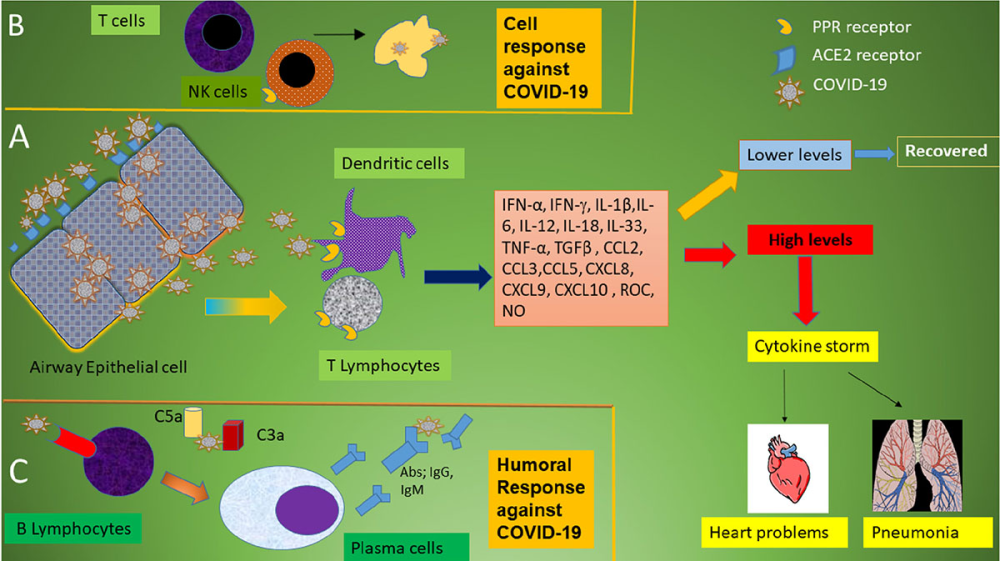Authors: Brandon Michael Henry1, http://orcid.org/0000-0002-1211-8247Isaac Cheruiyot2, Stefanie W Benoit3,4, Fabian Sanchis-Gomar5,6, http://orcid.org/0000-0001-9523-9054Giuseppe Lippi7, Justin Benoit8 Correspondence to Dr Brandon Michael Henry, Cincinnati Children’s Hospital Medical Center, Cincinnati, Ohio, USA;
Abstract
Background The mechanism by which SARS-CoV-2 triggers cell damage and necrosis are yet to be fully elucidated. We sought to quantify epithelial cell death in patients with COVID-19, with an estimation of relative contributions of apoptosis and necrosis.
Methods Blood samples were collected prospectively from adult patients presenting to the emergency department. Circulating levels of caspase-cleaved (apoptosis) and total cytokeratin 18 (CK-18) (total cell death) were determined using M30 and M65 enzyme assays, respectively. Intact CK-18 (necrosis) was estimated by subtracting M30 levels from M65.
Results A total of 52 COVID-19 patients and 27 matched sick controls (with respiratory symptoms not due to COVID-19) were enrolled. Compared with sick controls, COVID-19 patients had higher levels of M65 (p = 0.046, total cell death) and M30 (p = 0.0079, apoptosis). Hospitalised COVID-19 patients had higher levels of M65 (p= 0.014) and intact CK-18 (p= 0.004, necrosis) than discharged patients. Intensive care unit (ICU)-admitted COVID-19 patients had higher levels of M65 (p= 0.004), M30 (p= 0.004) and intact CK-18 (p= 0.033) than hospitalised non-ICU admitted patients. In multivariable logistic regression, elevated levels of M65, M30 and intact CK-18 were associated with increased odds of ICU admission (OR=22.05, p=0.014, OR=19.71, p=0.012 and OR=14.12, p=0.016, respectively).
Conclusion Necrosis appears to be the main driver of hospitalization, whereas apoptosis and necrosis appear to drive ICU admission. Elevated levels CK-18 levels are independent predictors of severe disease, and could be useful for risk stratification of COVID-19 patients and in assessment of therapeutic efficacy in early-phase COVID-19 clinical trials.
For More Information: https://jcp.bmj.com/content/early/2021/03/30/jclinpath-2020-207242
